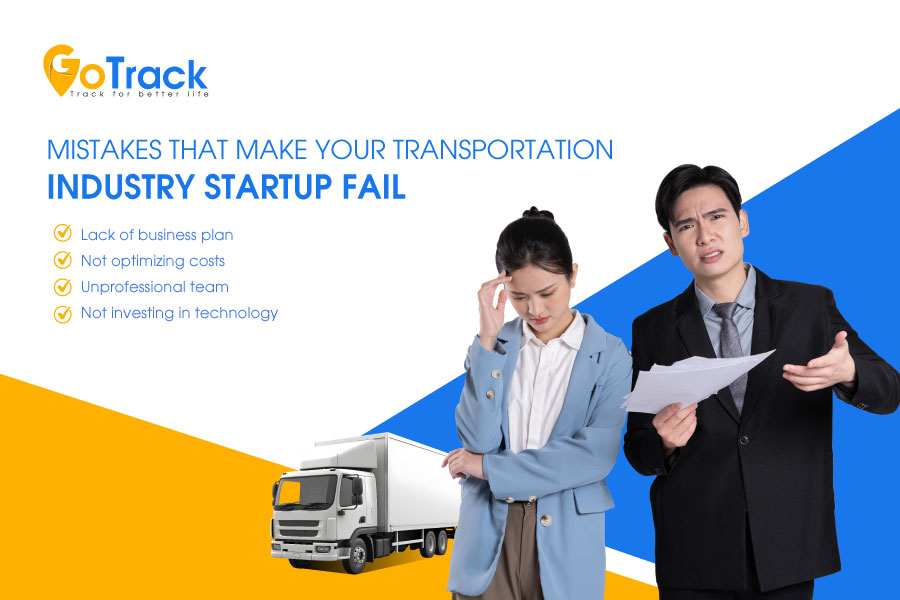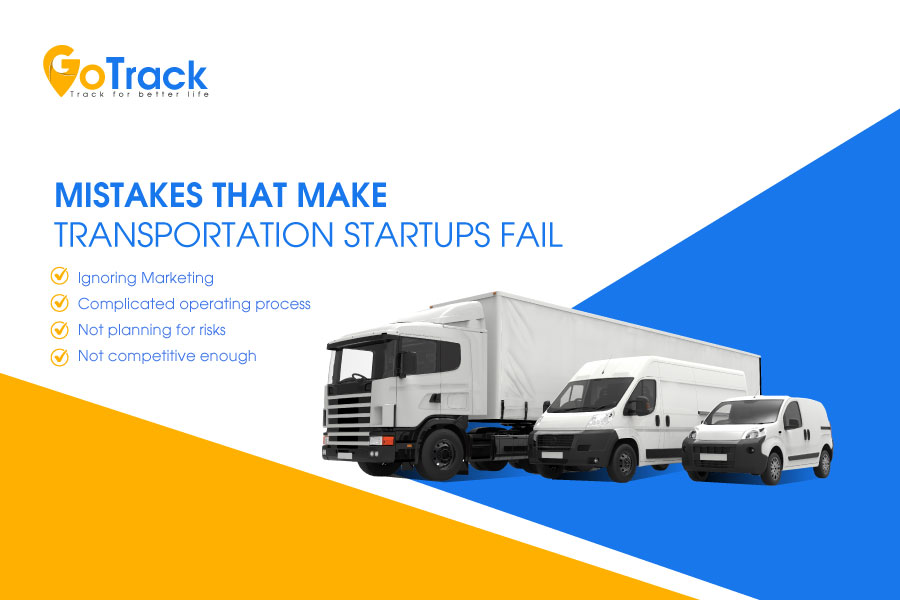The transportation industry is one of the potential fields and is chosen by many people when starting a business. However, this is also an extremely competitive industry, with many difficulties and challenges in the operation process. In fact, in recent years, the failure rate of transportation startups has always been high.
If you are planning to start a transportation business, please note these 8 reasons why transportation startups fail!
8 mistakes that make your transportation startup fail
Lack of a clear business plan
The leading reason why most transportation startups fail early on is the lack of a detailed, methodical business plan. Many businesses are established when the founder has not thoroughly researched the market, customer needs, competitors, etc. Therefore, when the business is operating, it will not be able to meet the needs of target customers, the pricing policy is not suitable, etc., leading to difficulty in competing with competitors in the market.
Lack of direction and no clear roadmap from the beginning will cause the business to lose direction, encounter many obstacles in the operation process, leading to losses and failures.
Not optimizing costs
Cost is one of the factors that determine the profit of a transport business. However, newly established transport businesses often lack an effective cost control strategy. Meanwhile, complex expenses such as: costs of purchasing facilities & equipment, vehicle maintenance, salaries & bonuses, insurance costs, etc., if not carefully calculated, can quickly drain the budget and cause the business to run out of capital.

Unprofessional team
Unprofessional and unqualified staff will quickly cause your startup to fail. Employees without expertise, slow work processing, many errors, inappropriate attitudes towards customers, etc. reduce work efficiency and cause customers to leave the business.
Especially in the transportation sector, the driver team plays a decisive role in the success or failure of the business. However, due to the large number of drivers and their remote work, it is difficult for businesses to closely manage, leading to failure to ensure work quality. Many drivers neglect their work, or drive dangerously, causing accidents to others, damaging vehicles and goods, delaying delivery, etc., which will cause many serious consequences and cause the business to fail.
Not investing in operational technology
In the era of technology 4.0, businesses that do not keep up with the digital transformation trend and do not invest in modern technology will have a high risk of failure. Manual operations are not only complicated and prone to errors, but also increase the risk of human resource fraud, violation of regulations, and loss of business assets. Therefore, for start-up businesses in the transportation industry, it is necessary to focus on applying essential technologies for business operations such as: cameras, standard positioning, fuel sensors, monitoring software, delivery/receipt management software, etc.
Not focusing on Marketing
A mistake that many new startups often make is ignoring branding and communication for the business. The lack of a Marketing strategy makes it difficult for businesses to approach and impress customers, and cannot compete with competitors who already have a solid brand.

Complicated operating process
New businesses often encounter problems with overly complicated and overlapping operational stages. At that time, employees need more time to handle work, customers have to wait too long, leading to low work efficiency, wasting time and money.
Lack of risk contingency
Starting a business in the transportation industry cannot avoid risks during operations such as: traffic accidents, damaged goods, broken vehicles, fuel price fluctuations, changes in related policies, etc. If you do not have a risk contingency plan and are not flexible enough to adapt to changes in the industry and market, it will be difficult to survive and develop.
Fiercely competitive market
The potential transportation industry is the target that many startups aim for. Therefore, this is an extremely competitive market for newly established small businesses. If your business does not have a difference and the right direction, does not innovate and create, it will be difficult to compete with strong competitors in the market.



